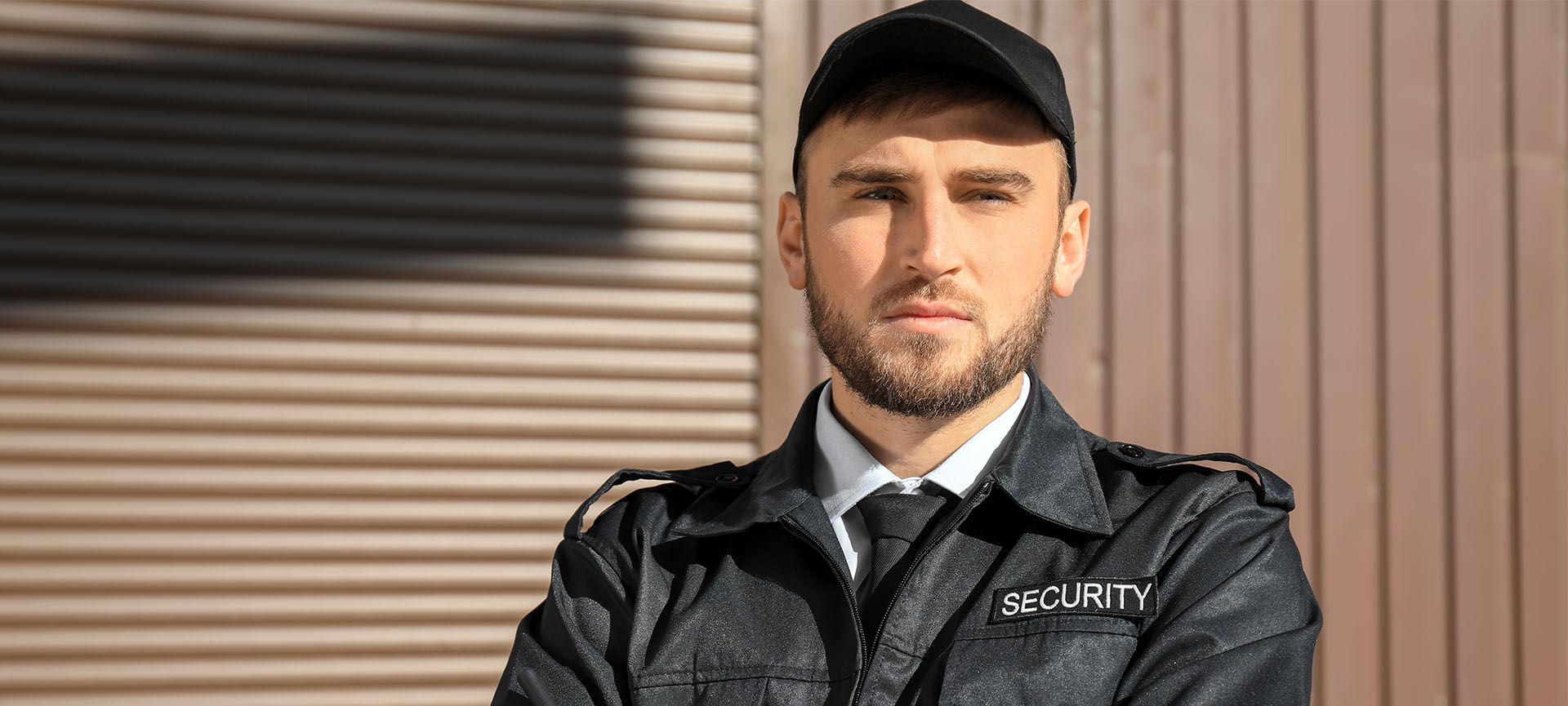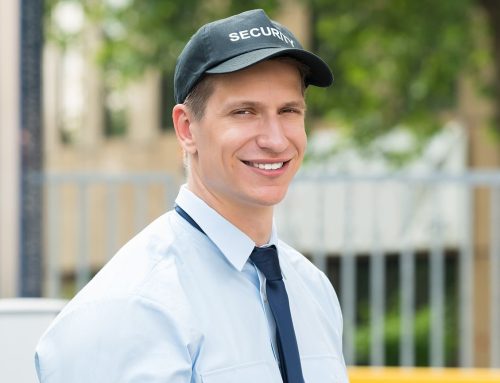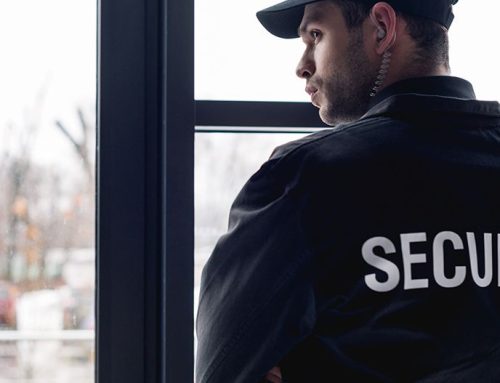As a security guard, you’re responsible for the safety and security of a designated property or area. Specific duties may vary depending on your employer but generally include observing and reporting suspicious activity. You may also have to swing into action to deter criminal activity.
In some cases, you may also need to provide physical security, such as preventing unauthorized access to a building or protecting valuables.
If you are looking for a challenging and rewarding career in security, read on to learn more about the role of a security guard.
Security Guard’s Duties and Responsibilities
Security guards are an invaluable asset to commercial and residential areas, as their primary duties involve providing a safe and secure environment. A security guard’s primary duties include protecting property and people, deterring crime, and responding to emergencies.
- A security guard is responsible for preventing crime through observant patrolling and responding quickly to emergencies. This involves being aware of potential hazards and taking appropriate action — such as calling for police or medical help when necessary.
- Security guards protect property by monitoring access to premises, ensuring only authorized personnel enter the area, and averting vandalism or theft.
- Through proactive observation, security guards ensure all occupants are safe and can go about their daily routines without concern about their safety or belongings.
Some of the responsibilities of a security guard include
- Patrolling the premises
- Monitoring surveillance cameras
- Inspecting vehicles
- Writing security reports
Security guards to fulfil a difficult role in maintaining safety in their assigned locations. The job involves a wide range of duties beginning with patrolling the area to ensure no suspicious behaviour is happening. This can involve both physically or electronically inspecting the premises and engaging with people on the property.
- Security guards must also keep an eye out for any illegal activities. They must monitor the surveillance cameras and scan the footage regularly for any suspicious actions.
- Inspecting the cars and bags of anyone entering or leaving the site is another key duty of security guards. This serves as a powerful deterrent against potential threats.
- Security guards must maintain detailed records of their observations and write comprehensive reports documenting incidents.
Security guards are tasked with protecting everyone’s well-being which often involves significant personal risk, making them some of our most valuable community members.
Related Article: What are the Various Types of Event Security?
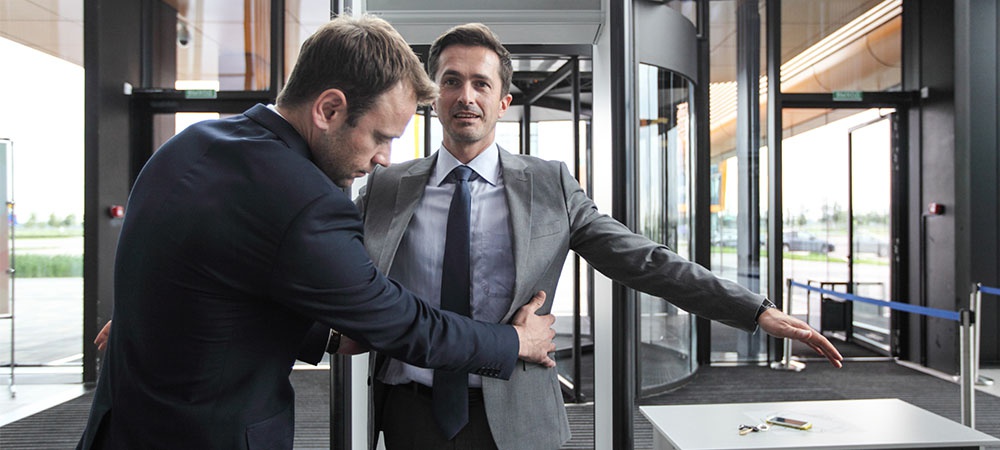
Security guards must remain calm under pressure and have good customer service skills.
Security guards are essential to keeping any environment safe, as they provide security and peace of mind. To be a successful security guard, you must possess excellent customer service skills and the capability to remain cool-headed under pressure.
Important qualities for security guards to have when interacting with customers or managing emergency scenarios include
- Practising interpersonal communication
- Handling difficult situations with tact
- Remaining vigilant at all times
- Being knowledgeable about legal regulations
Ultimately, successful security guards must be able to multitask various tasks with confidence and assurance.
Security Guard Job Requirements
The following attributes are key to fulfilling a security guard’s duties and responsibilities.
Physical Strength
Working as a security guard requires more than just staying vigilant. You must be physically fit to protect yourself and handle any difficult situations that may arise.
Physically fit guards will have more strength and agility, giving them an important advantage if ever the need to subdue an assailant arises.
Their job requires them to patrol, stand for long periods, and occasionally face conflicts. That is why employers often select personnel based on physical fitness when hiring for positions as security guards.
To be successful, security guards take responsibility for safety seriously and devote time to exercise and strengthening their bodies.
Licence & Training
In most Canadian regions, security guards must be properly licensed by their local government to practice their trade. Licensing requirements vary from region to region but typically include criminal background checks and formal education or experience in security.
This regulation safeguards citizens, ensuring that the guard’s qualifications have been verified and they are qualified to provide adequate security services.
Although licensing is a standard across the country, some businesses may require additional training or certifications depending on the type of security they need. This ensures their employees can meet any unique conditions of duty needed and satisfy the company’s requirements for optimum safety.
Related Article: How to Manage a Security Team in Your Event Planning Process?
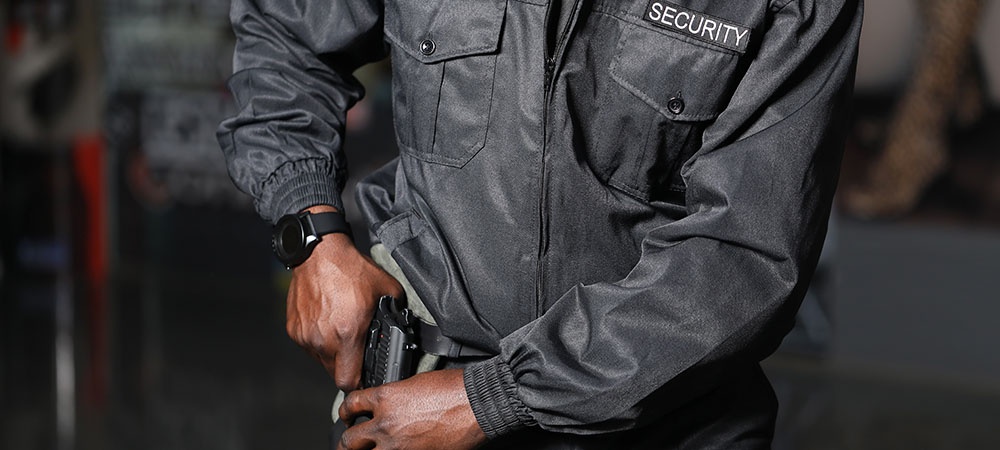
Final thoughts
To sum up, the role of a security guard is incredibly important for any type of organization or business. It pays well and provides the opportunity to build valuable skills in the security industry. The job is also varied and offers an exciting daily routine.
Of course, there are some risks associated with being a guard and you may be asked to work nights and holidays. However, these sacrifices can be worth it if you strive to provide a safe environment where people don’t have to worry about their personal safety or that of their family.
Becoming a qualified security guard is not as hard as you might think; just research your local requirements and complete the necessary paperwork to get officially certified.
With hard work and effort, you could easily become an essential part of a team dedicated to protecting individuals from threats in their environment.
Discuss career prospects with Northern Force Security — Ontario’s leading provider of security services for private and corporate entities.

